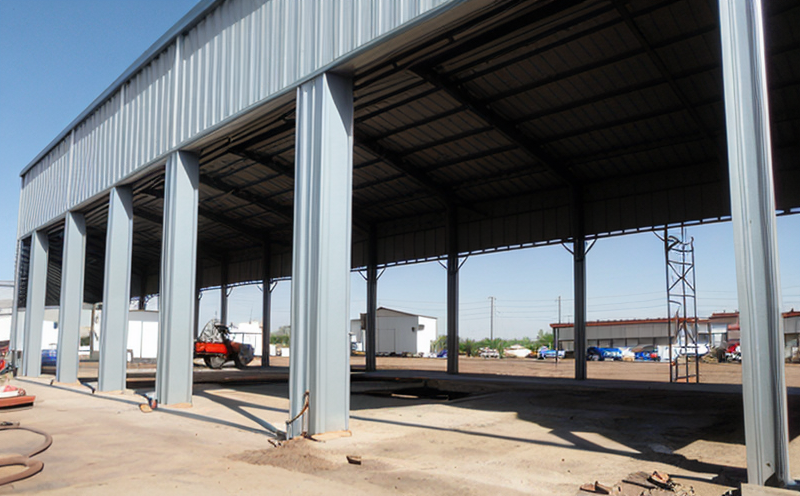EN 10228 Magnetic Particle Evaluation
The EN 10228 standard is a crucial tool in non-destructive testing (NDT) for the inspection of ferromagnetic materials, primarily used to detect surface and near-surface flaws in welds, forgings, castings, and other steel components. This method involves applying magnetic fields to the material under examination and then using the visual detection of magnetic particles that are drawn to areas of flaw-induced flux leakage. This technique is widely recognized for its ability to identify defects early in the manufacturing process or during maintenance.
The application of EN 10228 Magnetic Particle Evaluation (MPI) is particularly significant within the building and infrastructure testing sector, especially when dealing with steel structures that are subject to high loads. Ensuring structural integrity is paramount for safety and longevity in construction projects. By using this method, engineers can identify critical flaws such as cracks, incomplete fusion, porosity, and inclusion defects which could lead to catastrophic failure if not addressed.
In the context of manufacturing facilities and infrastructure projects, compliance with international standards like EN 10228 ensures that quality control processes meet globally recognized benchmarks. This is essential for both domestic and export markets where product safety and reliability are critical factors. The standard's rigorous procedures provide a standardized approach to inspecting ferromagnetic materials, thereby reducing variability in testing outcomes across different laboratories.
The process of EN 10228 Magnetic Particle Evaluation involves several key steps: preparation of the test specimen, application of the magnetic field using either direct or indirect methods, inspection under suitable lighting conditions, and finally, interpretation of results. Proper surface condition is crucial; any dirt, grease, or oil must be removed before testing to ensure accurate detection.
For successful MPI, the appropriate equipment such as a portable magnetizing unit, magnetic powders or liquids, and an inspection area free from external interference are required. The choice of magnetic particles depends on the type of material being tested; for instance, dry powder is preferred for rough surfaces while water-based suspensions work better for smooth surfaces.
The interpretation of MPI results can be challenging due to various factors including operator skill level and environmental conditions. However, with training and adherence to best practices outlined in EN 10228, reliable assessments can be achieved. It’s important to note that this method does not detect all types of flaws; it primarily targets surface-breaking defects.
Real-world applications include the inspection of structural steelwork during construction phases, ongoing maintenance checks on bridges and buildings, and quality assurance in manufacturing processes involving stainless steels and other ferromagnetic alloys. Proper use of EN 10228 ensures compliance with industry regulations while enhancing overall product reliability.
- Preparation of the specimen to ensure clean surfaces
- Application of the magnetic field using appropriate equipment
- Inspection under optimal lighting conditions
- Interpretation of results by trained personnel
Eurolab Advantages
Eurolab, as a leading laboratory specializing in structural testing and evaluation, brings unparalleled expertise to the application of EN 10228 Magnetic Particle Evaluation. Our team of certified technicians ensures that every test adheres strictly to the standard requirements, providing accurate and reliable results.
We offer comprehensive services ranging from initial consultation on specimen preparation to detailed reporting post-inspection. With state-of-the-art equipment tailored for MPI testing, our facilities can handle a wide range of materials and sizes, ensuring consistent quality across all projects.
Our commitment to customer satisfaction extends beyond mere compliance; we provide in-depth analysis and recommendations based on the findings, helping clients make informed decisions regarding their structural integrity. Additionally, Eurolab supports continuous improvement through regular training programs for our staff to stay abreast of advancements in testing techniques and standards.





